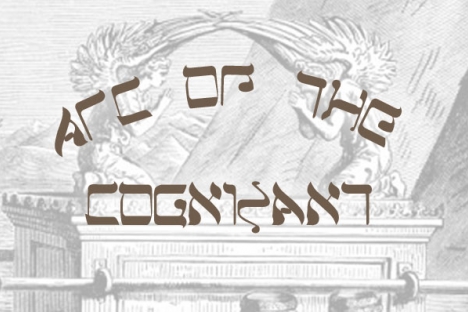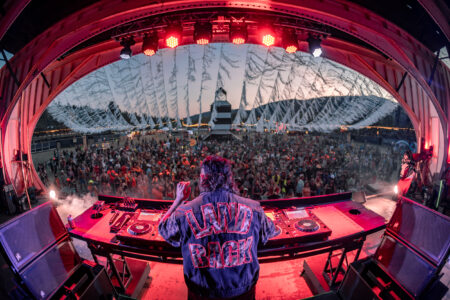COLUMN: Talking about the generations
Arc of the Cognizant CLXXXIII
“Why don’t you all just f-f-fade away? And don’t try and dig what we all say … The things they do look awful cold. I hope I die before I get old.” — The Who, My Generation
“Your sons and your daughters
Are beyond your command
Your old road is rapidly agin’
Please get out of the new one
If you can’t lend your hand
For the times they are a-changin’ — Bob Dylan, The Times they are a-changin’
Political evolution: I’m not young anymore
As a young man, I knew the political and social Causes I fought for were righteous. Youth today are no less sure.
What changed – me, or them? Or the causes?
Why are issues in youth politics now about culture but not socialism or class?
Why are university campuses free only for speech of the correct sort, not all?
Why are the woke so sure that the aggressive promotion of trans rights to state-financed transition is correct? Or funding curricula to teach woke cultural agendas and identity politics?
Why are the young, both Jewish and Gentile, united to damn Israeli views, to see morality only in Palestinian perspectives, including Hamas’ manifestos?
That I pose those questions forces me to admit I’ve deserted the tribe of The Young. Once I felt that I was far-Left, a Maoist; not for long. (Che T-shirts, Mao’s red book, faux-guerrilla berets, were common. Poseur alert!)
For Every Generation, a label
My generation faces the eternal challenge by the young to explain ourselves and prove we care for future generations. Gen X, Millennials, and Gen Z are inheriting tough prospects, and want explanations.
Today idealistic progressives have the word “woke” applied to their politics, or maybe “social-justice warrior”; the inability of old and young to appreciate the other’s perspectives is quite similar to the divide between my parents’ and my own generation.
[A searching historical essay on woke-ism: https://www.newstatesman.com/podcasts/audio-long-reads/2022/12/a-brief-history-of-woke-how-one-word-fuelled-the-culture-wars-audio-long-reads]
Eternal Generation Gap
I take as self-evident younger generations, observing the world they will inherit after adolescence, make two assumptions:
1). The world our parents and grandparents are bequeathing to us, is deeply flawed. They probably did the best they could; we accept they tried.
2). The world we will make when we’ve grown into the positions of our parents — when we’re the ruling generation — will be a better one.
Communication Breakdown
As demonstrated by the lyrics quoted in the epigraph of this column, feelings between generations are not always gentle nor lacking in harsh judgments.
The younger generation feels that the older is “blocking the way” of the new-and-better world possible. They’re confident they’ll do better than the old. The older feels judged unfairly, and assert the young will (must) lose their optimism and inflated self-esteem when they see how hard it is to construct noble and progressive Change out in the “real world” of adults. The old feel defensive.
Peace, Poses, Flowers: Failure
My generation, commonly labeled “baby boomers”, is not universally-loved today. We has labels like hippie, flower-child, peacenik, radical-activist; some chose “revolutionary” (e.g. Weathermen, Black Panthers, Red Brigades.)
I’ve written socio-economic essays about boomers. [ from 2013: https://thenelsondaily.com/2013/01/we-are-not-solution-we-are-problem-22892/ ]
We look to my mind unprecedentedly blessed by Fortune: born when long-lasting peace and the UN were newly-established for the West; capitalism was poised to deliver a golden age of affluence and opportunity; technology and economics delivered us abundant means for individual choice, liberation, self-fulfillment, fairness.
No generation in human history ever witnessed more security. We tell ourselves narratives about our exceptional youth, summed up as “The Sixties” when Change was impossible to resist. Nostalgia, for the years “when The Revolution was in everyone’s minds”, isself-indulgent. I’m gratefully aware of blessings, and painfully cognizant of underwhelming delivery on promises we made.
“Yeah, Boomer.”
We were Agents of Progress. Youth, then, guaranteed improvements. Boomers judge the young for not being as idealistic and wonderfully liberated and motivated for world-changing (e.g. end-the-war, Black civil rights, feminism, gay liberation) as we imagine we were.
Did we truly succeed? That’s a contested narrative; no verdict’s possible. In 2024, European war and economic insecurity are back. Climate-change and species-extinctions weigh human spirits with sadness. The young have every right to disdain boomers’ conceited opinion of themselves.
Boomers’ heirs are derisive when we compare our ‘successes’ to their ‘failures’. “Why are you not changing the world the way we did? We stopped the war in Vietnam, etc.” … Yeah. Okay, boomer.
https://www.vox.com/science-and-health/2019/11/12/20950235/ok-boomer-kids-these-days-psychology
My peers know our argument that we created a better world isn’t convincing. What generation ever did bequeath something inarguably better?
Charles Eisenstein says we can still make it better. https://charleseisenstein.substack.com/p/2023-the-more-beautiful-world-our
Fault and Blame: who takes responsibility?
The state of our planet’s climate, its oceans, air, forests, and soils, is dire, and the young – for example, Greta Thunberg – demand to know why. I confess I can’t make a convincing case that former generations aren’t responsible, that the fault is not in the defective actions of older humans. It is anthropogenic.
https://www.sierraclub.org/tennessee/blog/2020/09/dear-eartha-did-boomers-cause-global-warming
And when political, social, or cultural issues challenge us – war in Europe and the Middle East, justice for indigenous peoples, rights for trans youth/sexual expression, racial and religious hatreds – the erstwhile radical of the Sixties is hard-put to know the “right side”.
Progressives of my era always seemed certain of the high moral ground we occupied; now I confess doubt about opinion on Palestine, trans rights, individual freedoms, when once I was righteous and impassioned. Leonard Cohen describes my two selves today: “you were born to judge the world, forgive me but I wasn’t.”
Conclusion
Idealism’s the privilege of youth; realism’s the default excuse for the old. This is an unreconcilable human condition, generations divided by time.
We can only hope love for our children and grandchildren, and theirs for us, will overcome the tendency of either side to disrespect the other.
“Just look at them and sigh, and know they love you.”
— CSNY, Teach your Children
https://www.azlyrics.com/lyrics/crosbystillsnashyoung/teachyourchildren.html

























